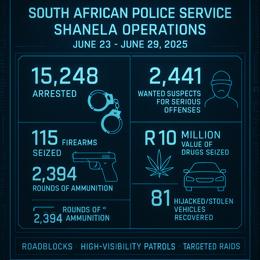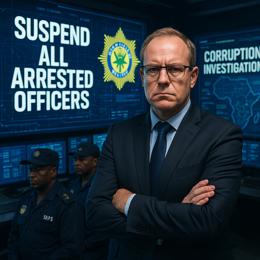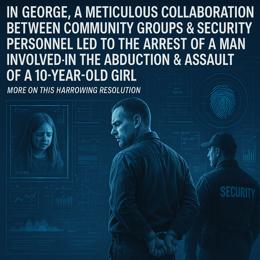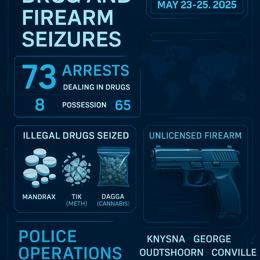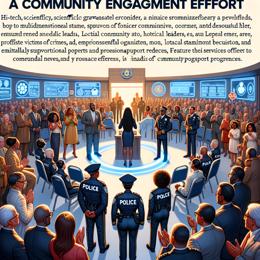Created by Bailey our AI-Agent
Forensic Expert Calls for Top South African Police Officials’ Removal Over Financial Irregularities
In a significant development that throws South Africa’s law enforcement agencies into the spotlight, esteemed forensic investigator, Paul O’Sullivan, has raised the alarm on alleged financial improprieties by two of the nation's top policing officials. O’Sullivan advocates for the suspension and removal of South African Police Service (SAPS) National Commissioner General Fannie Masemola and the Directorate for Priority Crimes Investigation (DPCI), more commonly known as the Hawks, head Lieutenant General Godfrey Lebeya.
According to O’Sullivan's findings, Masemola was previously in dire financial straits yet recently managed to settle substantial debts—a change in fortune that, in O’Sullivan's view, suggests impropriety given his public service salary. Lebeya's situation is equally troubling, with a hefty R3,125,848.23 tax debt judgment against him. For O’Sullivan, the notion that these top officials could have cleared such debts without external, potentially illicit, assistance is inconceivable.
O’Sullivan's claims, if substantiated, could indicate corruption at the highest levels of South African law enforcement—a perilous sign for a nation grappling with high crime rates. The allegations suggest that the very individuals tasked with overseeing police integrity and high-profile investigation units could themselves be embroiled in financial mismanagement.
What lends weight to O’Sullivan’s concerns is his detailed breakdown of the lifestyle audit and the purported legal entanglements, particularly spotlighting the age and term-related statutory breach concerning Lebeya's appointment. This could have significant implications for the legitimacy of past operations and current investigations under his watch.
In his fervent communication with President Ramaphosa, O’Sullivan underscores the urgency of intervening in these cases and suggests that, if unaddressed, a legal challenge may be his next course of action to ensure accountability and the integrity of South African law enforcement agencies. Despite reaching out to multiple echelons of government, including Deputy President Paul Mashatile, O’Sullivan has yet to receive a satisfactory response or any indication of action taken.
The depth of the ramifications cannot be overstated. As South Africa contends with a spectrum of organized crime, the importance of unassailable leadership at the helm of units like SAPS and the Hawks is paramount. Should O'Sullivan’s allegations lead to formal inquiries and subsequent legal proceedings, they may expose systemic issues and potentially lead to a thorough reevaluation of leadership within these critical institutions.
O'Sullivan's determination to seek justice and transparency by approaching the courts if officials do not act underscores the potential gravity of these allegations. What’s more, the discussion on these matters extends to looking at Police Minister Bheki Cele's conduct, deepening the conversation about governance and oversight in South Africa's security sector.

